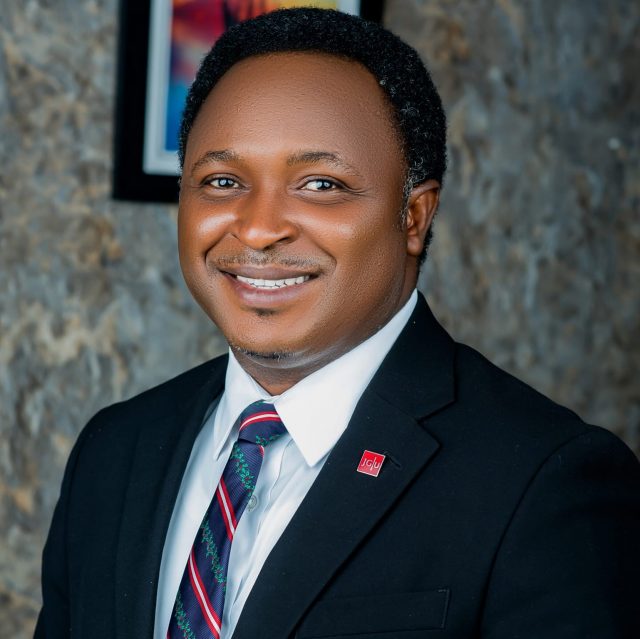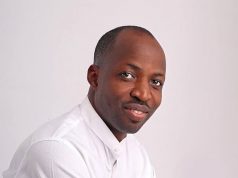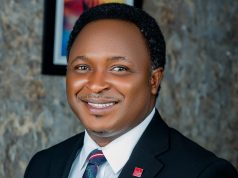Today’s Sunday Impulse is longer than usual, but necessarily so. For today, I am writing for serious readers only 
Here, I share my thoughts on the TB Joshua saga, what the Bible means by “touch not my anointed and do my prophets no harm,” “judge not so you won’t be judged,” and related issues.
If you have followed the BBC Documentary on late Prophet T.B. Joshua, among many things that can be discussed from the investigation, I share a few thoughts and highlight a few issues of concern that I think are symptoms of a bigger problem among Christians in Nigeria, Africa and beyond.
1. THE “WHY NOW” QUESTION:
The main question I have seen from those supporting TB Joshua who want to discredit the investigation or seem to be neutral is: why now after he is dead? Why didn’t the accusers and the BBC come out with these accusations while he was alive?
Firstly, a simple Google search (especially on YouTube) will show you videos of most, if not all, of the victims you see there. I watched some of their confessions against TB Joshua nearly 10 years ago. Some of them reported threats to their lives. I learned from Arise News yesterday that a local news agency in Ibadan had done a similar explosive investigative report on TB Joshua’s atrocities right from the start of the ministry, but people did not take them seriously. So, please search YouTube before you ask “why now” question? It is not now.
Secondly, the “why now” question is not fair to the victims, especially if their claims are true, because someone’s demise does not diminish the impact of his actions on his victims. He may be dead, but these victims are alive, living with the brunt of his actions, so it is appropriate to air their experiences while at SCOAN. It is hard to believe that such a large number of people of different age groups, from different countries and backgrounds, would consistently tell a lie against the same man over a long period of time.
2. A SYSTEMIC PROBLEM:
Similar to the why question, the second response I have seen is those who believe that since T.B. Joshua has died and can’t defend himself, the investigation is needless and pointless, and he should be allowed to “rest in peace.” However, this line of argument neglects the fact that, attention may be on TB Joshua as a person but the issues of abuse in some churches are systemic problem that TB Joshua’s demise does not reduce in any way. How did he defend himself from the accusations that were brought while he was alive, many years before and towards his death?
But the issue is, is SCOAN still operating? Yes. Are there other “MOGs” doing the same? Yes. Are those people discipling younger ones to do the same and some young girls and boys may still fall victims of abuse? Yes. These questions make the BBC documentary ever relevant, even 100 years after TB Joshua, if such practices are still going on. I hope that the documentary makes people more careful to check what “MOGs” do with their children and to hold them to account, no matter how powerful they are.
3. SHIFT OF ATTENTION FROM THE VICTIMS:
Sadly, and symptomatic of our decaying culture even in church, the attention was shifted from the victims to the “strong man.” If these people suffered such abuses, then for many of them, their foundations or their career development were “wasted” there with little opportunities to pick up again. Some of them still live with the shame and pains of abuse, etc. These are fundamental issues. Yet, we chose to neglect their suffering to talk about the “strong man” while the weak, the real victims, are ignored blatantly. Can we at least react to such issues with sensitivity and at least empathy to the large number of people who are affected directly?
4. FAKE OR NOT FAKE?
I have seen those who generalize the argument from the specific cases to the general question of whether TB Joshua was fake or not. What is the definition of fake again? Interestingly, the basis on which they argue that TB Joshua is not fake is that he performed genuine miracles. People have come out to testify how he genuinely healed them, to prove he was not fake. To this, I say, praise the Lord.
But listen, as far as the Bible is concerned, one could perform a genuine miracle (if at all it is a man who performs it) while he himself is not a genuine MOG (see Matt. 7:21-23). What makes a genuine MOG is not one thing, but the totality of his calling by God, his consistent righteous lifestyle, then his expression of his spiritual gifts (including miracles). So, the fact that TB Joshua healed you does not close the argument as to whether he was fake or genuine, neither does it close the case as to whether he abused those accusing him or not. Herbalists and magicians still heal people and the people report being genuinely healed. Does it make them MOGs?
5. CELEBRATING TRAGEDY?
I have also seen those who gladly report stories of some tragedy that have happened to any of the victims who are accusing TB Joshua, e.g. it is alleged that a child to one of them died recently. TB Joshua’s supporters share the news to validate their argument that the accusations are false, hence God is punishing the false accusers immediately. How cruel! How heartless! To go by this argument, should we also take it that TB Joshua’s death is God’s punishment upon him for the abuses as well? Should we take it that any tragedy that happens to a MOG or his church is a sign that God is punishing them for their evil? Give me a break.
6. THE “TOUCH NOT MY ANOINTED” ARGUMENT:
Now to the “touch not my anointed and do my prophet no harm” argument (1 Chron. 16:22; Ps. 105:15). Two things quickly.
a. The context of 1 Chron. 16:22 shows that the “anointed ones” (note the plural) refers to Israel as God’s chosen people, starting from how God protected their patriarchs (Abraham, Isaac, Jacob, etc.) when they were few to the Israel of that time. So, it is a warning to pagan nations to not mess with God’s plan of choosing Israel through which he would save the world (through Christ Jesus). The same David later applied the idea in sparing Saul’s life in 1 Samuel 26:9-11, leaving God himself to “strike him down.” Coming to the New Testament, the anointed are all believers in Christ, the anointed One, “for you have been anointed by the Holy One, and you all have knowledge” (1 John 2:20, ESV). We can’t be the chosen people, a royal priesthood, a holy nation, etc. (1 Pt. 2:9) without being anointed. So, if we are to apply the command to “touch not my anointed” in insulating MOGs from accountability and letting them get away with every abuse or bad theology, then the same applies to all believers in Christ.
b. But what about the aspect of “do my prophets no harm?” It is the same context – warning to other nations to not harm God’s prophets among the anointed Israel, who have been saddled with declaring truth about the present and the future. It has nothing to do with not holding them to account when they err. Some translations (e.g. NKJV, NASB, Berean, etc.) use ‘My’ instead of ‘my’ to emphasize how this command applies only to prophets who are unquestionably sent by God rather than anyone bearing the title prophet.
7. PROPHETIC MINISTRY NATURALLY CONTROVERSIAL?
I heard a popular MOG in Nigeria recently saying that the prophetic ministry is naturally controversial, so, we shouldn’t be surprised if prophets are always in one controversy or another. The question, however, is, what kind of controversy did the genuine prophets in the Bible have? The controversial nature of some (not all) prophets in the Old Testament was that of their daring attitude to confront kings and powerful people over their injustices and abuses, and neglect of the poor. It was their ability to deliver accurate prophecies from God and watching it come to pass that wowed but also scared rulers from them. It was mainly not controversies involving cases of immorality. In fact, moral controversy such as adultery and corruption was rather the mark of false prophets (e.g. Jer. 23:14). True prophets were thrown into prisons and persecuted not because they abused children or were corrupt, but because they dared to confront kings with raw truths against injustice, not to chase cloud or draw attention, but to draw the nation to repentance. So, now tell me, what is the nature of today’s controversies involving prophets and MOGs generally? What is the nature of our own prophecies today that differ from theirs? I leave you to answer that.
8. LACK OF SPIRITUAL DISCERNEMENT:
One of the major problems with the Nigerian church is that, we are so lacking in spiritual discernment such that no single MOG can be identified as a false prophet or fake MOG. Does the Bible talk about false prophets? Yes, in fact many. One of the tasks of true prophets in the Old Testament was to call out false prophets and expose them (Eze. 13; Jer. 23). In the New Testament, the spiritual gift of discernment is meant to guide (1 Cor. 12:10). Please read Ezekiel 13 and Jeremiah 23 to see what genuine prophets said about false prophets and shepherds. The reverse is the case today, such that any attempt to hold any MOG to account is regarded as jealousy, hatred, etc. Were prophets Ezekiel and Jeremiah also jealous of the false prophets they called out?
9. NOT ONLY IN CHRISTIANITY:
One of the arguments I have often heard when an erring MOG is called to account is that, “this is only happening in Christianity. Other religions don’t do that. They support their own, etc.” Two thoughts quickly. First, the church should operate on its own standards as guided by the Scripture rather than other religions’ standards. Secondly, it is not true that it is only in the church that religious leaders disagree with each other. If you have followed the ongoing feud between different top level Islamic sects leaders in Northern Nigeria, you would understand that the internal conflict going on in Islam regarding their theology and some practices is as fierce or even fiercer than what is happening in the church. Just a YouTube search will help you get the gist.
10. VALIDATION THROUGH CHARITY WORKS ?
I have also seen those who refer to TB Joshua’s humanitarian services to validate his ministry and to shield him from any accountability. They said he was a good man and not fake because he was helping the poor. As much as charity work is helpful, is charity work a validation of a true MOG? If so, then Dangote, Bill Gates, etc. would have been the best MOGs, cos they are among those who give the biggest donations to charity. Let’s not even dwell much on this one.
11. THE CONSPIRACY ARGUMENT:
I have also seen those who add this investigation to a list of similar investigations against popular MOGs in Africa and the West (notably that of Ravi Zacharias, Shepherd Bushiri of Malawi and Uebert Angel of Zimbabwe) to say that the secular world is bent on destroying the church. Each of these cases could be treated separately, cos they don’t bother on the same issues. But the point here is that, any system that lacks internal scrutiny and accountability is bound to self-destroy itself. That’s what is happening to the church in Nigeria, due to the fact that no one holds anyone to account. Even the umbrella body Christian Association of Nigeria (CAN) functions more in an out-looking role in relation to the government and other religions than an in-looking or internal role of self-scrutiny within the church.
12. GOOD BEGINNING, BAD ENDING?
Every human being (even those with the finest character and godliness) is susceptible to error and abuse of power. It is true that absolute power corrupts absolutely. Human character is fragile. An MOG may start well, but if he does not operate in an environment with checks and balances, his good character remains fragile. If you have a church or any other organization that the leader has absolute power, and the system itself cannot check his excesses, such a person stands the risk of abusing his power, sometimes unintendedly, by way of financial embezzlement, abuse of the weaker ones in the system (mostly young girls and boys and women), etc. So, it is safer for MOGs and all leaders to build systems that subject them like anyone else to scrutiny and holds them accountable. It is a safeguard for you and the system at large. This seems not to be the case in many churches in Nigeria, hence the frequent stories of abuse.
13. THE “JUDGE NOT” ARGUMENT:
“Judge not, so that you will not be judged” (Matthew 7:1-3) is another verse that is commonly wrongly used to shield MOGs from scrutiny and accountability. But that verse is to be understood in its context, namely, of hypocritical judgment of what you yourself are (even more) guilty of (i.e. the plank in your own eyes) while trying to correct others of the same sin you commit (i.e. speck in your brother’s eye). If by “do not judge” Jesus meant you should never identify anything as wrong, sinful or evil, then he himself violated his own standard, because he judged the Pharisees and scribes of their hypocrisy, pride, and self-righteousness (cf. Matthew 23). Positive judgment in the sense of identifying what is wrong or sinful according to the word of God and warning people from falling victims, with humility and good intent to preserve the sanctity of the church or an organization, is biblical (Eph. 5:11). It is not possible to expose evil, reward good and punish wrong without judgement.
14. WHY ONLY THE CHURCH AND NOT OTHER SECTORS?
Others have also said why would BBC investigate the church instead of other corrupt sectors? Well, BBC and other media organizations also investigated corruption in sports, business, and political sectors in many countries, and it is out there. Do you remember the Pandora Papers? A simple Google search would help. Let the church not play the victim just because the searchlight has beamed on us now. We celebrated the investigation that unveiled massive corruption among high and powerful political leaders around the globe, let’s not castigate same investigation cos it is now on us. While we can’t divorce the possibility of ulterior motives contributing to the investigation, we can’t fault the secular world for exposing what we should have exposed if we are truly the salt and light of the earth. If the church or an organization lives above reproach, the secular media has little to no news from the church to catch the attention of the world.
15. ANOTHER INVESTIGATION?
I have also read in some quotas that SCOAN denies knowing any of the people who are accusing TB Joshua. These are real people, with real names and real addresses. If SCOAN is serious about clearing their name and proving these people as false, they should consider hiring a reputable independent firm to investigate these people and SCOAN as well, to ascertain the facts: were they truly at SCOAN as staff or disciples? Do family members and friends know about where they were at the time they claimed they were in SCOAN? Etc.
I have also read the account that this whole investigation is orchestrated by former staff who were dismissed for some financial misappropriation who are now fighting back. If this is the official position of SCOAN, they are at liberty to also sponsor an independent investigation that would prove to the world that these people embezzled money and were fired or ran away. This shouldn’t be too difficult to do.
I have also read accounts saying this is an attempt to sabotage late TB Joshua’s wife’s ministry by some of his disciples that wanted to take charge after him but she took charge of the church. Thankfully, as far as I understood the documentary, she seems to be “innocent” of most of the accusations. If this is the case, she has a chance to also respond, expose them, and build her own ministry with integrity and transparency. Since she is also a Prophetess, she has the following to build something solid now.
SUNDAY IMPULSE: Whether we consider the accusations against TB Joshua as entirely true or not, the investigation calls MOGs and the church to: provide adequate internal checks and balances, protect and defend the weak as much as we protect the strong, involve another independent firm to further investigate if the church believes this is nothing but a conspiracy, and take a posture of humility and repentance if any of those accusations are true and make amends for the future. In these ways, the church will regain its reputation as truly the salt and light of the earth (Matthew 5:13-16).












